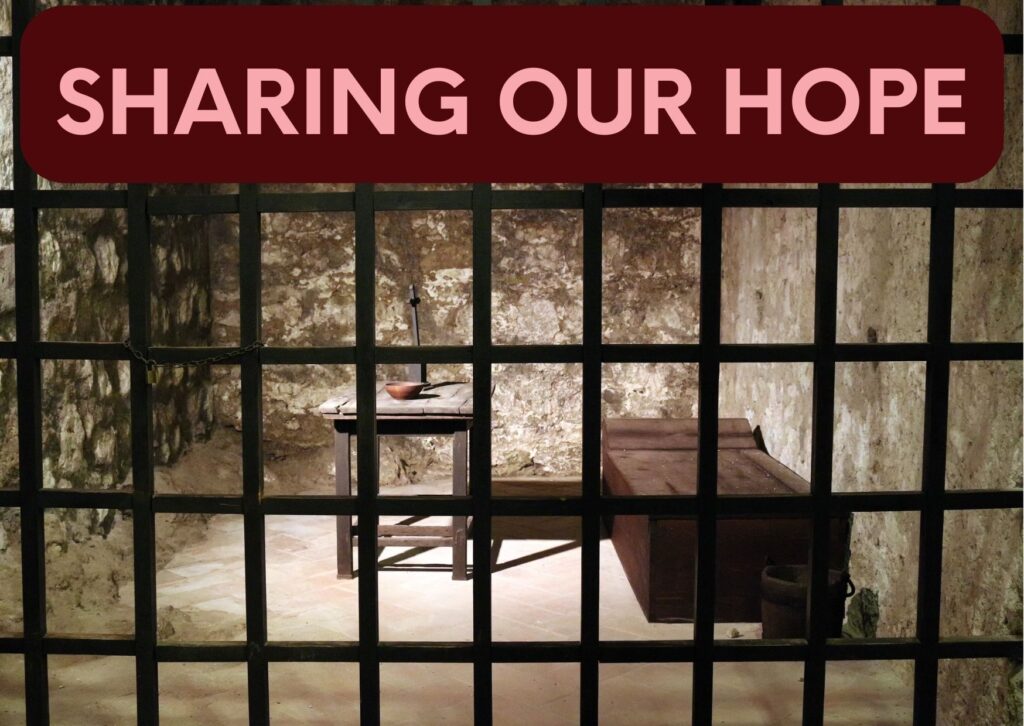
Not only for me…

Not only for me…
Where does the time go? Today is Theo’s fifth birthday; these milestones are almost trivial to us in our modern society, where we all expect to live into our eighties and nineties. However, did you know that the child mortality rate in the United States for children under the age of five was 462.9 deaths per thousand births in 1800, meaning that for every thousand babies born in 1800, over 46 percent did not make it to their fifth birthday? And just 100 years ago, in 1915, that number was 17% did not make it to their fifth birthday. Today that number is less than a percentage point, approximately seven children out of one thousand. A remarkable change in 200 years! Adult lifespans were not much longer, with many life expectancies only reaching into the forties for much of human history. With this in mind, we should be thankful every day God blesses us with our closest relationships. Regardless of the length of our lives, no one promises us that there will be a tomorrow; therefore, we should cherish each day.
A theme is carried throughout scripture concerning the generations of our families. Subtle as it is; however, it is continuously present. It is the existence of generational faith. During the first five books of God’s word, God repeats a promise to the Israelites, stating:
Deuteronomy 5:6-10 – “I am the LORD your God, who rescued you from the land of Egypt, the place of your slavery. “You must not have any other god but me. 8 “You must not make for yourself an idol of any kind, or an image of anything in the heavens or on the earth or in the sea. 9 You must not bow down to them or worship them, for I, the LORD your God, am a jealous God who will not tolerate your affection for any other gods. I lay the sins of the parents upon their children; the entire family is affected–even children in the third and fourth generations of those who reject me. 10 But I lavish unfailing love for a thousand generations on those who love me and obey my commands.”
Because of the average length of life in those days, there was little generational overlap. We truly live in an unusual period of history where there is the possibility of seeing not only your grandchildren but your great-grandchildren as well, meaning our influence stretches farther than ever. Yet, this wisdom rings true that the life I lead will affect not only my personal outcome but also the choices of my children and grandchildren. If I start chasing other “gods,” my children will learn to follow that idol. I know this is a difficult piece of wisdom to digest, yet it is in God’s word. The things I value will be the same things my children love, whether I espouse them openly or indirectly.
Building a generational faith is a challenge for me personally. I am a type “A” personality and love being busy and productive. However, I have witnessed that many “preacher kids” see what their parent works as a product of career choice and not a product of faith. Therefore, it is vital that I teach my children that I do what I do because I love God and people, and not for a paycheck. Otherwise, they will perceive their dad as just a hard worker and not a faithful servant.
To wrap this up, this means I am setting up future generations of my family based on my current actions. The pattern and example of my life that I exhibit are what will last for generations. Think about the Israelites; they could constantly remember the faith of Abraham, Isaac, and Jacob; and God’s faithfulness to them even when they were less than perfect. Take a look at the books for 1-2 Kings and 1-2 Chronicles and see how often it says they committed the sins of their fathers. Time and time again, we are reminded in scripture about the repercussions of our actions.
The Christian faith is not only about my faithfulness, but Christianity is also about living for others. Therefore, I am not a Christ-follower for myself only; I am faithful for my kids… for future generations… not only for me. And if you don’t have any children, then you are still living for future generations. Because the principles apply whether you a parent, aunt/uncle, acquaintance. We are attempting to live in such a way that we model what real faith looks like so that future generations can follow our example. Therefore we choose to love God with all my heart, mind, soul, and strength so that my five-year-old kid may, in turn, love God with every fiber of his being. And so that perhaps one day, my great-great-grandchildren will also know and love God.
“Why God, why?”

“Why God, why?”
For the first time in a long time, God is blessing us with a significant amount of rain, which is good. However, we don’t always see rain as the beautiful blessing it is for us. Friday, our first day with some rain, my family and I headed out for a stroll to a park. It had already been drizzling, so we brought a towel for the slides, excited to run and play after being couped up. As we started for the park, it began to sprinkle, not much, but enough to make Amanda and I wonder if heading to the park was a good idea. The more we walked, the larger and more frequent the drops fell… we decided to turn around and try the park another time. Surprisingly our boys handled the news well and headed toward our home. A couple of minutes later, Theo paused, stopping in his tracks, looked up to the sky, and in a questing voice, had a brief conversation with the Creator of the Universe. “Why God, why?” Amanda and I chuckled because of the purity and honesty of the moment; our little four-year-old recognized who controls the world and asked a question I must have asked a million times before, “Why God, why?” We have all been there at one time or another, confused about how our lives have turned out or why some misfortune has befallen us. And to be honest, I don’t have the time or wisdom to answer every situation we have encountered. However, I have one question to add to our quandaries, “Why do we feel like rain is a bad thing?”
I don’t mean from a physical world representation because I think we all know how beneficial and necessary rain is for our survival and the survival world. Although we might not like rain ruining our parade, we know that rain is essential and indispensable, so we tolerate it, and we might even love it if we haven’t had it in a while. My real question is, why don’t we like spiritual or emotional storms in our lives? The apostle Peter puts it this way:
1 Peter 1:6-8 — “In this you greatly rejoice, even though now for a little while, if necessary, you have been distressed by various trials, 7 so that the proof of your faith, being more precious than gold which perishes though tested by fire, may be found to result in praise, glory, and honor at the revelation of Jesus Christ; 8 and though you have not seen Him, you love Him, and though you do not see Him now, but believe in Him, you greatly rejoice with joy inexpressible and full of glory,”
The rain (various trials) is merely an opportunity to put our faith into action. Standing firm during the storms of life demonstrates our faithfulness, not the sunshine and roses. It is during difficulties that our faith is verified. Therefore, when tested, we rejoice and praise because it is an opportunity to love and believe in Christ even more.
There is one more thought regarding rain being a blessing. In Genesis, we read of a cataclysmic deluge; water engulfed the world during a massive storm that tested the faithfulness of one family. This flood was a terrible event for the ungodly; however, it was a blessing for Noah. The flood was, in one act, both a judgment and a deliverance.
2 Peter 2:5, 9 – “and [God] did not spare the ancient world, but protected Noah, a preacher of righteousness, with seven others, when He brought a flood upon the world of the ungodly; … 9 [then] the Lord knows how to rescue the godly from a trial, and to keep the unrighteous under punishment for the day of judgment”
For Noah, the events leading up to the flood were exhausting and disturbing; however, God commends him for his ability to endure this challenging time. The storm for Noah, and the rest of the world for that matter, was a good and purifying event. The cataclysmic flood of Genesis was a good thing. That should comfort us during the storms of life. These events aren’t meant to drive us farther away from God but to draw us closer to Him. This concept is held throughout scripture, from the Flood to Revelation; trials are meant to help us reflect not only on the judgment of God but on His deliverance and provision during challenging times. Our faithfulness does not mean that in the middle of a “Why God?” moment, we can clearly see the outcome of our faithfulness; we must still cling to God, knowing that he will always rescue us from our various trials. It also doesn’t mean that these trials will be easy; if they were easy, they wouldn’t be trials. Let the trials be what strengthens you, not what weakens you, and that is all about perspective when we ask God, “Why?”
Shine a Little Brighter

Shine a Little Brighter
I recently read a news article that enlightened me about our present situation. The situation itself is dire and has immediate consequences for our existence… worse yet, there is very little we can do about it. We must accept our fate and find a way to live with our new reality. The terrible news: “Washington State loses approximately three minutes of daylight every day in October!” That’s three minutes a day, 21 minutes a week, and over 1 ½ hour a month! As tragic as this is, it is predictable, and we can prepare ourselves mentally by adjusting our schedules and turning on a few more lights. Although we love our sunshine, we know that winter is coming, yet this shift is only temporary; it is all a part of our earthly existence.
Most of the time, we do well with this transition, but one side effect I did not account for was for our son Cooper. Cooper has developed a fear of the dark, which is not insurmountable, but he is more cautious in the twilight hours. However, he refused to come out of his room this last week until the lights were on. Our boys wake up early, usually before 6:30 AM, and this past week Cooper began calling out to me from the doorway of his room because the house was too dark. He was unwilling to set foot into the darkened place. Darkness is intimidating; we conjure up monsters and perils, unsure of what lurks in the shadows. And for a three-year-old boy, it was paralyzing, and he needed some reassurance that he could safely exit the room.
We, too, can let the darkness paralyze us. The ugliness in the world, the insecurity and impermanence of life, and the opposition to the Light can freeze us. It is almost too much to bear. We would much rather stay secluded in our rooms, afraid to venture into the world. We prefer to remain in our cozy, well-lit room than face the perils of the world around us. However, there is a problem with that mentality, as Jesus informs us.
Matthew 5:14 – “You are the light of the world. A city set on a hill cannot be hidden.”
We are the difference makers in the world. We are the vessels that light is supposed to shine. And if we are not there to shine our lights, the darkness will consume everything around us. It certainly would be easier to hide away in our corner of the world, but the world needs us to shine out into the darkness. And when we do become afraid, let’s remember the words of the apostle Paul:
2 Timothy 1:7 – “For God has not given us a spirit of timidity, but of power and love and discipline.”
We are the light. We can’t be afraid of the dark. We can’t be timid about confronting the world around us. Even though it might be intimidating to speak the truth of God into people’s lives or share the Good News with them, we still need to shine that light. We need to be a city set on a hill, unable to be hidden, full of power, love, and discipline. Unwavering and steadfast in a world that needs light. It may seem like Washington in October, and we are losing 3 minutes of daylight a day, but that is when we shine a little brighter and keep the darkness away. Shine a little brighter so that those who might be afraid to leave their rooms are able to make it through the colder, darker months.
Let’s Not Be Naive

Let’s Not Be Naïve
There is one thing I often forget about when I am parenting… they are only three and 4-years-old. As a result, my expectations often exceed their ability. And to be clear, I am not speaking about their physical abilities. Those limitations are easy to accommodate; perhaps they cannot reach a shelf, their tiny legs can’t keep up, or they just aren’t coordinated enough to tie their shoes. The shortcomings I forget about aren’t their language acquisition or their ability to express their thoughts meaningfully, although that would be extremely helpful sometimes. If I had to pinpoint the limitation that irks me the most, it would be their overall lack of wisdom.
I fully understand that they can’t comprehend the greater complexity of the world around them. However, I get that children don’t understand the basic principles of cause and effect. They have no idea what will happen when they spin around in circles with a garden rake or a shovel. They don’t pause to consider what will happen when they walk across sharp rocks with their shoes off.
wis·dom [ˈwizdəm] NOUN
- the quality of having experience, knowledge, and good judgment; the quality of being wise: the soundness of an action or decision with regard to the application of experience, knowledge, and sound judgment
Little children don’t have the experience or knowledge to make good/wise decisions. Those events will come with time; however, it does not make my frustrations disappear when I explain why we don’t play with a wasp… even if it flutters on the ground.
No matter how you slice it, there are gaps in all of our knowledge bases. There are things we haven’t encountered or experienced; therefore, we are naïve and unaware of how they affect us or change our lives. And perhaps that is why the beginning of wisdom is to admit that you don’t have all of the answers and you need to rely on someone else’s knowledge to thrive in the world.
Proverbs 1:2-7
“To know wisdom and instruction, To discern the sayings of understanding, 3 To receive instruction in wise behavior, Righteousness, justice, and integrity; 4 To give prudence to the naive, To the youth knowledge and discretion, 5 A wise person will hear and increase in learning, And a person of understanding will acquire wise counsel, 6 To understand a proverb and a saying, The words of the wise and their riddles. 7 The fear of the LORD is the beginning of knowledge; Fools despise wisdom and instruction.”
Here is Solomon sharing this experience and knowledge with anyone that will listen. Yet, there is a beginning, a foundation that directs us to stand in awe and reverence before the Creator. Wisdom is the recognition that we are not the preeminent originator or author of the information. Worded in a more colorful way, we did not hang the moon. When we despise instruction, it consigns us to the realm of foolishness; fools believe they do not need to learn, which immediately becomes the roadblock to gaining wisdom.
There is a purpose to wisdom. There is a reason to admit that we don’t have all the answers. It is through humbling ourselves and recognizing that we have gaps in our knowledge that we can find peace and confidence.
Proverbs 1:22, 32-33 –
“How long, you naive ones, will you love simplistic thinking? And [how long will] scoffers delight themselves in scoffing And fools hate knowledge? … 32 “For the faithlessness of the naive will kill them, And the complacency of fools will destroy them. 33 “But whoever listens to me will live securely And will be at ease from the dread of evil.”
It is through this admission that we gain life and security. We can bumble around like children learning through painful consequences. Not only hurting ourselves but those around us. We attempt to handle dangerous and unsafe things, thinking we know better than our Father in heaven. Or, we can trust that His way is best and rest in awe and wonder that there is a God that laid out this wisdom for us to hold onto, giving us peace and security for our everyday lives. Let’s not be naïve and gain wisdom from the Author of this world and reality itself.
What If …

I couple this knowledge with a quote from George Orwell and his classic novel 1984. “Men can only be happy when they do not assume that the object of life is happiness” (George Orwell, 1984). What if the purpose of life is not to pursue happiness? As if happiness is something to be bought or attained. But instead, what if life were about finding meaning and discovering your full potential?
Words

I used to give this advice to teenagers all the time: In this world, the only thing we truly possess is our thoughts, and words are the direct expressions of our thoughts. Therefore, the words that come from our mouths reflect our thoughts and represent who we are deep inside. This wisdom does not come from me. This wisdom has been revealed to us by Jesus, and it is a good reminder for us.
Sharing Our Hope

This past Saturday, I had the difficult task of officiating a memorial service. Most of the time, I don’t mind funerals or memorial services. Although they are painful for the family for obvious reasons, it is part of life that we all should die. I believe that we have all discovered that everything comes to an end; even the best and healthiest people eventually run out of time. And except for a rare individual, here or there, most people feel like they “need” more time. However, what made this memorial service painful were two circumstances.
- He was a good man. (Romans 5:6-8)
He was the type of individual that you really like. He was a military veteran serving in Vietnam and even returned for a second tour, which is rare. He was a volunteer firefighter, risking life and limb for his community. He loved nature and was avid in all respects of outdoor husbandry. He was a devoted father and husband. He was a really great all-around guy. Everyone who knew him loved him. However…
- He was not a Christ-follower.
These memorials are tricky because it is difficult for me to interject hope into the situation. I can encourage the family to honor the memory of their loved one, but I can’t reassure them that they will see their loved one again. It reminds me of Paul’s words to the church in Thessalonica.
1 Thessalonians 4:13-14, 18 NASB20 – “13 But we do not want you to be uninformed, brothers [and sisters,] about those who are asleep, so that you will not grieve as indeed the rest [of mankind do,] who have no hope. 14 For if we believe that Jesus died and rose [from the dead,] so also God will bring with Him those who have fallen asleep through Jesus. … 18 Therefore, comfort one another with these words.”
These words remind me that there are a lot of people in the world that have “no hope.” They have no comfort when death is standing at their door. When a loved one passes away, leaving them with a hollowness that is difficult to absorb. And it breaks my heart. The exact words that I use to comfort others are empty to those without the blood of Jesus.
This hope is gained not in good deeds or earning the favor of those around us. We will never be ‘good enough,” but we are still covered because we are in Christ. It should also encourage us to have that hard conversation with someone because the “time is short” (1 Cor 7:29). We don’t know how much time any of us have. Still, it is better to give them hope now than to sit in their memorial service without hope.
An old friend and mentor once told me a great way to visualize this is to imagine that everyone you meet is wearing drab gray prison clothes. They are locked away and without hope. There is no chance for parole, and their sentence is for “life.” But what if you could share with them the truth that there is hope and that there is someone who can commute their sentence? That someone can unlock their cell, and they can be free. Wouldn’t you want to share that hope?
It is also an excellent time to reflect that we do have hope; we have eternal hope. No matter how much time we have left on this earth, we will have far more time in the age to come. So we should genuinely live like that is our reality. It is hard for us to live with this as our mindset, but it is our reality. We used to live as if we had no hope, but we should now live differently regarding our eternal hope.
Ephesians 2:12-13 NASB20 – “… [remember] that you were at that time separate from Christ, excluded from the people of Israel, and strangers to the covenants of the promise, having no hope and without God in the world. 13 But now in Christ Jesus you who previously were far away have been brought near by the blood of Christ.”
For the Lord

Some weeks in life are more challenging than others; this is even true for those who work in professional ministry. I don’t say this to complain, but I think we can all feel that sentiment from time to time. There are weeks when our adversary prowls around like a lion waiting for us to let our guard down. There are moments when we feel like Elijah standing in the presence of God on Mount Horeb, “When Elijah heard [it,] he wrapped his face in his cloak and went out and stood in the entrance of the cave. And behold, a voice [came] to him and said, “What are you doing here, Elijah?” 14 Then he [Elijah] said, “I have been very zealous for the LORD, the God of armies; for the sons of Israel have abandoned Your covenant, torn down Your altars, and killed Your prophets with the sword. And I alone am left; and they have sought to take my life” (1 Kings 19:13-14). I had one of those weeks this last week. The week left me feeling drained and frustrated. And then there was the proverbial straw that broke the camel’s back; I had a former student and friend post their testimony declaring that they had deconstructed their faith and were walking away from Christianity. Sadly, I have grown accustomed to this new aspect of the Christian faith. Daily, there are church leaders and laypeople continually becoming disillusioned with the tenets of Christian ideology and completely pulling away from their beliefs. To be more than fair, these alienated people are usually upset at other humans and not at God, but in their worldview, God and his followers are one and the same. Therefore, they walk away.
Feeling the sorrow that comes from loss, I am presented with the opportunity to reflect on my faith. What do I believe in, and why do I believe in it? It is almost counterintuitive, but during these reflections on someone leaving their faith, I am encouraged to pursue mine more intentionally. Encountering these stories of separation allows me to reaffirm the foundations of my beliefs.
- Is God real? Yes / No
- Is the Bible True? Yes / No
- Does He love me? Yes / No
- Did He send His Son to earth? Yes / No
- Did His Son die on a cross, was he buried in a tomb, did he rise from the dead? Yes / No
- Did all these facts restore my relationship with God? Yes / No
If I can answer “yes” to these questions, I know I must live like they are real. I have investigated these to understand what is accurate and true. If you feel ambiguous about any of these questions, I encourage you to examine and study them for yourself. Some will read these questions and affirm that they are all true; however, they will counter them with a “but…” and expand into some anecdotal scenario about how a person or organization has hurt them. Those circumstances are very tragic and traumatizing, but it doesn’t negate the validity of these other statements. If there is a God that loves me so much that He sent His Son to die in my place so that I can be raised to a new life, then nothing else matters. I think about a passage that Paul writes about Christian living and how we should view every circumstance, even the difficult ones.
Colossians 3:22-24 – “Slaves, obey those who are your human masters in everything, not with eye-service, as people-pleasers, but with sincerity of heart, fearing the Lord. 23 Whatever you do, do your work heartily, as for the Lord and not for people, 24 knowing that [it is] from the Lord [that] you will receive the reward of the inheritance. [It is] the Lord Christ [whom] you serve.”
The way and the reasons we live are not to endear us to others, win favor in the eyes of those around us, or even promote our sense of value. Everything we do is for the Lord. Even slavery, which is deplorable, is not accomplished with the attitude of reducing the severity or pleasing their masters but with sincerity of heart for Christ. Unfortunately, some people have an inaccurate view of why they follow God. They expect that following God will solve their problems or even promote social change… although trusting and obeying God can accomplish this, it is about doing it for Jesus and not others.
When I hear that some have grown cold in their faith or left it altogether, I must remind myself that I did not become a Christ-follower because I wanted to make friends, to be popular, or even to be touted as “better than others.” On the contrary, I follow Jesus because He was God; he put on flesh and died for me. This means everything I do, is for the Lord and not men. It is not for their approval, their agreement, or their pleasure. Everything I do is for God.
Rejoicing and Weeping

Weeping and Rejoicing
I have noticed a terrible habit that I have grown accustomed to displaying. First, I will tell you how I came to see that I have this habit. A week ago, I was visiting with both sides of our family and noticed that I have become horrible with light conversations. Once we talk about the weather or recent events, the conversation dies. And I started wondering why I have become so poor about sharing my life with others, even close family. Most people might get bored hearing about my personal life, specifically my ministry and my kids. Still, your family always wants to hear the latest installment… yet I don’t share that information.
So, I rounded up the usual suspects to discover what had changed in my life to inhibit my interpersonal communication habits. First, I targeted my biological and environmental factors to see what had changed. For example, biologically, I have gotten older, which means slightly more sedentary, but I also have a pretty active life, particularly if you factor in raising my kids. Another contributing factor is that perhaps I have grown more introverted in my old age… which tends to happen as we get older. Yet I have always been more extroverted than most, so even if that is the case, I still desire to converse with people.
Then I thought about environmental factors that have changed and how technology has possibly inhibited my conversational habits. You may have noticed that I don’t post much for those of you who I have friended on social media; my wonderful wife handles most of our familial media content. But I do scroll from time to time. And when I scroll, I am caught up on the latest happenings with everyone around me. Then, I give a brief “like” or “love” and move on with my day. Sharing the snippets of our lives is what these platforms were made for; include pictures (which are worth 1000 words), and you have a full-fledged novel moving past our eyes, giving us a virtual snapshot into each other’s lives.
Now to address my dwindling everyday dialogue. When I speak to people, I already know what they have been up to, and I assume they already know what I have been up to; therefore, there is nothing left to share. And I feel this is especially true when it comes to my family. They already know everything, so I think there is no need to divulge more information. But that’s the problem social media typically only highlights the most superficial surface level of events in our lives. It rarely portrays all the emotions and feelings that go into each portion of our day. Therefore, when I assume that my family knows everything, my assumption is wrong; they only know a small portion, the portion that I have revealed.
This causes me to reflect on God’sGod’s view of the church. Typically, what we see on a Sunday morning is the most superficial part of each other’s lives. We might get glimpses of each other’s high or low points, but ultimately, we miss the bigger picture. And so I think about Paul’sPaul’s words to the church in Rome.
Romans 12:15-16
“Rejoice with those who rejoice, and weep with those who weep. 16 Be of the same mind toward one another; do not be haughty in mind, but associate with the lowly. Do not be wise in your own estimation.”
Three times in verse 16, Paul uses a conjugate of the Greek word φρονέω phronéō, from-eh’-o- to exercise the mind, i.e., entertain or have a sentiment or opinion, understanding, to feel or think. The phrases connected to this word are “be of the same mind,” “do not be haughty in mind,” and “do not be wise in your own estimation.” And so, it seems that the key to having the same mind and understanding each other is to rejoice and weep with those experiencing those same emotions. In other words, we should be sharing our lives in such a way that we can also share in our high and low points.
To tie these thoughts together, I witness within myself the reluctance to share my life events in person because I have already shared them through social media. However, that does not allow others the opportunity to rejoice or weep with me in person. We become linked with the “same mind” when we share these details of our lives, and each person can congratulate or comfort me in these moments of my life. If I want to grow in this community, I need to share my life with others, which means weeping and rejoicing even in the “small talk.”
Don’t You Want To Feel Better?

“Don’t you want to feel better?”
Our middle son has a flare for the dramatic. He will undoubtedly be a phenomenal actor or a tremendous athlete that can draw a foul with a performance rivaled with Daniel Day-Lewis. Some of his best dramatic roles happen when he is under the weather, typified by a runny nose and a slight cough. Nothing troublesome, but he doesn’t handle discomfort well. At the beginning of his cold, he is more than a little reluctant to blow his nose and take some natural cough suppressants. However, the sicker he gets, the more disagreeable he becomes. It is as though any type of relief we could provide is worse than his present circumstance, and so he revolts and repels our attempts to offer help. A while ago, we discovered a fantastic invention, a lollipop made to soothe the throat when the coughing becomes unbearable. They are made with all-natural honey, vitamin C, and a little pectin to help break up the bad stuff. Here’s our thought: it looks like a sucker (which kids love); it is good for him and will help him feel better. However, when he is at his sickest, he will not even attempt to utilize the sucker. He will refuse even to open his mouth… and as a parent trying to do their best at 2 AM, it is possibly the most infuriating action ever. When he begins acting like this, I ask, “Don’t you want to feel better?” And I know that it will help, but he can’t imagine how this little lollipop will help in his pain and suffering, so he refuses it and grits his teeth.
Two passages come to mind when this happens. Both happen during Jesus’ ministry and come from the Master teacher.
John 5:5-8
“Now a man was there who had been ill for thirty-eight years. 6 Jesus, upon seeing this man lying [there] and knowing that he had already been [in that condition] for a long time, said to him, “Do you want to get well?” 7 The sick man answered Him, “Sir, I have no man to put me into the pool when the water is stirred up, but while I am coming, another steps down before me.” 8 Jesus said to him, “Get up, pick up your pallet and walk.”
In this narrative, we see Jesus purposely single out this man. A man that has been infirm and paralyzed for 38 years. I can only imagine how difficult of an existence this would have been. It would be difficult today, but it would have been an unfortunate reality in the first century Judea. Jesus knows the man’s story, and his misery asks him literally, “Do you want to be made whole?” What a tremendous question for us all to answer. Do we want to be complete or restored? The man responds in a nonspiritual fashion on why it would be impossible for him to be made well. However, it is evident by his answer that he does wish to be whole again, but he sees no possibility for it to happen. And so, with a simple phrase, Jesus heals and restores the invalid. He sent him on his way.
Some people in the world want to be made well. They are tired of the incompleteness they feel. They are wearied from the drudgery of trying to heal themselves. They have exhausted all possibilities and have no relief. When we encounter these individuals, we must ask the question, “Do you want to get well?” And when they want to know more, we show them our Savior.
However, there is another type of person that exists in the world. They are the kind that knows there is a possibility of being healed, but they don’t want any sort of discomfort in the process. Therefore, regardless of the treatment’s benefits, any change or transformation is deemed painful, grit their teeth, and avoid being made whole. Jesus describes these people as swine, content to live in the mud, and will defend their mess tooth and nail.
Matthew 7:6 “Do not give what is holy to dogs, and do not throw your pearls before pigs, or they will trample them under their feet, and turn and tear you to pieces.”
The tricky part is knowing which type of people we are dealing with when we ask the question. First, however, we must always ask the question, “Do want to be made well?” Like a parent, we continue to offer the soothing lollipop. When we offer our Savior a salve for their souls, they might turn and gore us, but we still provide the medicine. We know that Jesus is the only thing that will satisfy and restore, so we must share, but there is always the reality that someone does not want to be made well. That doesn’t prohibit us from asking, but it provides answers when someone refuses the help of the Great Physician.
Mirrors

The other day was my 20-year high school reunion. I obviously didn’t go, but thankfully because of Facebook, I was able to see some friends share their experiences, and I was if I was able to attend. However, there was something that shocked me, and all my friends were… old. I could see the same faces from 20 years earlier, but they had changed, weathered by life and experiences. This seems logical; it has been two decades since we’ve seen each other, but the more shocking thing is that they had aged while I am still an 18-year-old kid. Now we all know the ridiculousness of this statement; of course, I have aged. Mentally I don’t feel I am any older than my mid-twenties, but the reality is that I am pushing 40. The point that James addresses in his epistle as he writes about our perception.
James 1:22-27 –
“But prove yourselves doers of the word, and not just hearers who deceive themselves. 23 For if anyone is a hearer of the word and not a doer, he is like a man who looks at his natural face in a mirror; 24 for [once] he has looked at himself and gone away, he has immediately forgotten what kind of person he was. 25 But one who has looked intently at the perfect law, the [law] of freedom, and has continued [in it,] not having become a forgetful hearer but an active doer, this person will be blessed in what he does. 26 If anyone thinks himself to be religious, yet does not bridle his tongue but deceives his [own] heart, this person’s religion is worthless. 27 Pure and undefiled religion in the sight of [our] God and Father is this: to visit orphans and widows in their distress, [and] to keep oneself unstained by the world.”
We might think we are young, but a simple glance in the mirror will confirm or deny that reality. In the same way, we can’t say we are doers of the word if our actions don’t reflect it. We can intently study God’s word, and if we never put it into practice, what good is it? I could research and devote myself to the intricacies of Greek and Hebrew languages, but if I never start living out the message in this book, what is the purpose?
So, let’s not fool ourselves anymore; I am not 18 years old, and if we are claiming to worship God, let us do it with word and deed. Let’s not just say we are Christians; let us do the things we claim to be our purpose. It is easy to say we are Christ-followers, but putting these principles into action is far more challenging. So let us hold up a mirror and reflect on who we really are.
